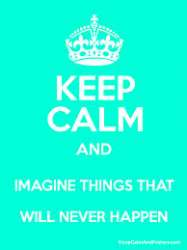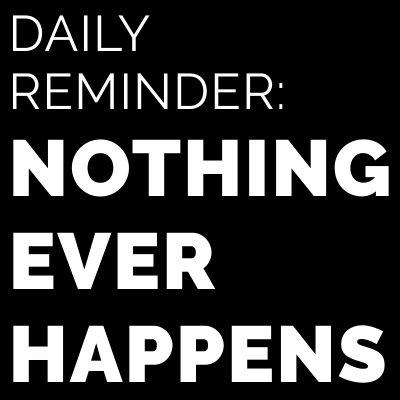In 2023, my focus on productivity was very poor. I would work on something for just 5-10 minutes and then get distracted by social media. At best, I think I was productive for only 2-4 hours a day. Constantly switching tabs in the browser and using social media was like a drug I knew was bad for me, but I couldn't stop. However, in the last 6-12 months, my productivity has probably been one of the highest in my life. I unlocked productivity levels that surprised even me. In this video, I want to share a few things that I hope will help you too, and also tell you about the things I'm still struggling with.
The most important thing I did was delete all social media apps from my phone. Now, apart from notifications from my family, nothing distracts me. Just think about it: the hardest-working and smartest people in the world—if I want to make good reels, I can’t do it unless I consume reels to understand trends. To be a good creator, you also need to build an audience. But consuming short-form content cannot be good for your health in the long run, that’s what I believe. So now, I don't spend more than 2 minutes on Instagram and I don’t visit the reels tab at all. I only check my close friends' stories, and that’s it. If you look at my Instagram, you’ll see I archived all my old reels because I don’t want my audience to see them.
Obviously, this has a commercial cost because many brands approach me, wanting me to promote short-form content. But I believe the personal cost—focus and productivity—is far greater than the commercial one. So, I’m completely okay with taking a stand that I don’t want to create or consume short-form content anymore. Overall, I’ve deleted social media apps from my phone, I keep my phone upside down, and I neither create nor consume short-form content. I think there are three benefits of this:
-
Fewer distractions: If I’m focusing on something, my attention is entirely on that task and not on my phone notifications. There's no temptation to say, "I'll check it in 2 minutes."
-
Increased creativity: I read an article in the Harvard Business Review that said when we get bored, we enter a "dream-like" state where new ideas spark. When I used to wait for a friend or be in an elevator, my natural reaction was to take out my phone. But now, I realize my best ideas often come when I'm doing something with no screen time, like when I'm taking a shower.
-
Forces me to talk to people: Many times, we take out our phones when we don’t want to have awkward conversations with strangers. But now, I’m forced to talk to people, even if it's just small talk, and I think meeting new people can have a 10x impact. You never know who could be standing next to you in the lift.
Now, I want to share three apps I use daily. Remember, apps are just tools—there is no perfect app. You might be able to do the same things using pen and paper, but I use these apps because you can’t solve something you don’t measure. I wasn’t measuring my productivity until I started using these three apps:
-
To-Doist: It’s a simple to-do list app that works for me. You can use any to-do list app.
-
Session: This app helps me log my tasks and track how long I’m working on them. It ensures I focus on one task at a time because humans can’t multitask effectively. A study from the University of Utah showed that only 2.5% of people can multitask well.
-
Notion: I use Notion for my daily and weekly reviews. I learned from a Wacom article that if you don’t break your goals into short-term and long-term parts, you can’t track your progress effectively. I keep it simple in Notion so I don’t spend more than two minutes on it. I track whether I’ve worked out, eaten well, slept well, and done productive work.
The third realization is that my superpower is saying “No” to people. You won’t be able to focus on your things until you learn to say no. Saying no to extra work, birthday parties, and all the things that sound exciting in the short term but distract you in the long run is essential. There is no exact science for this. You need to find your own way. In the last 6-12 months, I've learned a lot about this. Just remember, don’t go to extremes. Saying no to everything is also bad, especially if you're an introvert like me. But saying yes to everything is bad too.
Now, I’ve shared three ways to improve focus, but I’ve realized that internal motivation has its limits. The best way to stay focused is through external accountability. Our environment has so many distractions, and internal motivation often fails. In the last 6-12 months, my external accountability has grown, which forces me to stay productive and focused. For example, I’m focusing mainly on two things right now: creating videos and meeting brand deadlines. I have to deliver because the brands won’t wait. It's the same with my startup—I have a co-founder, and I must be accountable to him. That’s why I think external accountability is one of the best ways to stay focused.
I suggest you find ways to bring external accountability into your life. Maybe you can create an accountability buddy, someone trying to achieve the same things as you. If you rely solely on internal motivation, focus will eventually break. My internal motivation is not high enough to stay focused all the time.
The final realization I had is that staying healthy, which includes exercise and sleep, is crucial. After years, I’ve let go of seeking social validation from these things. I used to think that people who don’t sleep much or drink excessively were crazy. But now, I’ve stopped caring about social validation for these things. My focus now is on eating well. I mostly cook my food, measuring all the calories and macros. I make sure I sleep at least 7-8 hours, and I try to exercise regularly. On days when I eat well, exercise, and sleep enough, my focus and productivity levels are really high. On days when I don’t get good sleep, my day is wasted, and I get frustrated. So I make sure to get enough sleep, even if I have to say no to dinner plans, birthday parties, or other events.
But it’s not as if everything is perfect. You might think I’m a genius after watching this video, but it’s not like that. I also struggle with a few things. One thing I struggle with is my phone usage right after I wake up. I tend to check emails and notifications first thing in the morning, and I want to reduce that. This year, I plan to keep my phone outside the room at night and avoid checking it first thing in the morning.
Another thing I want to reduce is my late-night usage of my phone, which I plan to stop. The reason I haven’t succeeded in the past is due to a lack of external accountability. I’ve been using the Headspace app, which offers meditation sessions, and I’ve learned that many people benefit from it. This year, I plan to join one of these classes for external accountability so I can start meditating regularly.
I hope this year is happier and more successful for you, your family, and everyone else. I hope what I shared is relevant to you and can positively impact your life. See you next time!
transcript of this video


it all comes down to journaling and dividing tasks